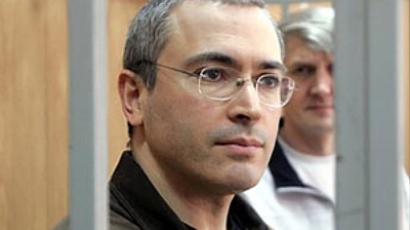Great Pyramid of Russia
Pyramid schemes have been around for more than 100 years, sucking people in and spitting them out financially crushed when the pyramid collapses. The greatest con in Russia's recent history left millions penniless.
The man behind one of Russia’s biggest financial frauds, Sergey Mavrody, has already served his sentence and is now trying his talent as a singer and TV host. His recent US counterpart Bernard Madoff is not so lucky.
Both Mavrody and Madoff were found guilty of massive financial fraud when millions lost money in their respective pyramid and Ponzi schemes. But the difference between their subsequent fates is that Madoff was sentenced in the US to 150 years in jail, plus $170 billion in restitution, while Russia’s Mavrody only got 4.5 years in jail and a mere $400 fine.
“Even if a person is found guilty of several crimes, the maximum sentence he can get in Russia is 25 years. In the US, the law is different: they add together the sentences for each crime to get the total,” explains lawyer Sergey Levin.
In 1994, Mavrody created the household name “MMM”. The company promised returns of a 1000%. In its massive TV advertising campaign, characters from all social backgrounds claimed: only fools don’t buy MMM shares.
“Dear, now I know how we will manage our budget. We will invest all our money in MMM shares,” a man said to his wife in one commercial.
Millions of people bought into MMM. Those who managed to sell their shares before the company’s collapse in the summer of 1994, did manage to profit – the shares by then had risen more than 125 times. However the majority of investors didn’t profit at all. MMM’s share price dropped from 127,000 rubles to just 1,000 rubles, and a few days later the police closed the company offices on tax evasion charges.
In August 1994, after Mavrodi was arrested, he immediately ceased all the activities of MMM and announced that he was going to run for parliament. Two months later he was elected, and so got political immunity because he was a deputy. This meant, at that time, he could not be held responsible for the scam. Two years later he even tried to run for president.
While some blame Mavrody for the collapse of MMM, others say he was only a puppet of more powerful hands.
“The government was involved with the financial flow of MMM. But the final drop was when Mavrody started buying Gazprom shares, and when his stake became too big, they decided in the Kremlin that was enough, and so the financial pyramid collapsed,” says Nikita Krichevsky, PhD of Economics.
Whatever the reason, the money was gone and neither the government nor Mavrody paid compensation to the millions of investors. Many are still asking, just like their favorite character from the mass advertising campaign, “Why Mavrody, why?”
“Why, why did it happen like this? The idea was good,” the commercial pondered.













